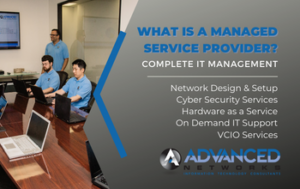 Virtualization has really been propagated recently. You may already enjoy virtualization without realizing it. But is it time for your organization to move to virtualization platforms? We’ve assembled some of the key pros and cons of virtualization to help you decide its role in your IT services in Los Angeles.
Virtualization has really been propagated recently. You may already enjoy virtualization without realizing it. But is it time for your organization to move to virtualization platforms? We’ve assembled some of the key pros and cons of virtualization to help you decide its role in your IT services in Los Angeles.
Key Pros of Virtualization
- Cut capital expenditure – With virtualization, instead of needing multiple distinct servers for different applications, you can run multiple virtual servers on a single physical server. You can optimize that single server for maximum efficiency, eliminating the need to buy, and support multiple physical servers, and reducing overall disaster recovery costs.
- IT cost savings – Reducing the number of physical servers offers knock-on benefits in IT spending. You have fewer physical servers to buy, maintain, support and power. Power and networking infrastructure is simpler. And, by migrating to virtualization in the cloud, you can enjoy a new universe of benefits and savings.
- Stronger disaster recovery – By utilizing virtual servers, the cost and complexity of supporting and hardening your services should be vastly more efficient and simple. All areas of disaster recovery (DR) can be more robust, and, particularly when handled via the cloud, much easier for IT services in Los Angeles to plan and automate.
- Fast, flexible deployment – Virtualization eliminates the need to buy new servers for most new services. Just spin up a new virtual server and you’re ready to go. Don’t need the server anymore? Just eliminate it. There is none of the traditional overhead associated with procurement, build, and maintenance.
Key Cons of Virtualization
- High upfront spending – Migrating to virtualization offers a raft of long-term benefits but initially, there will be some big up-front expenditures to shift over to virtualization. Further, some applications may not be compatible with virtualization. This is also true for some vendors, who may not suit virtualization. As long as you are aware of these limitations and plan for them, however, virtualization can still offer huge benefits.
- Potential security risks – Some aspects of server virtualization can result in security risks. it is important to be aware of these as you implement server virtualization. Also, if you’re looking to virtualization in the cloud, perhaps via managed services rather than on-site systems, there is, of course, an inherent risk in putting your data/systems in the hands of others.
- Limitations – Every technology has limitations and virtualization is no different. You may never hit those limits, but they exist, particularly if you’re looking for massive scales of efficiency and power. Moreover, as virtualization is not suited for not all applications and servers, it is important to enter any discussion of migrating to virtualization with your eyes open.
- Need for new skills – As with any new technology, virtualization requires learning new skills. You’ll need to prepare for investment in staff or training in order to support migrating to virtualization.
As popular a buzzword as virtualization is, it’s not exactly simple and straightforward for IT services in Los Angeles. These are just some of the key pros and cons of virtualization. Advanced Networks can help you get your head around the specifics. Contact us today to learn more.




